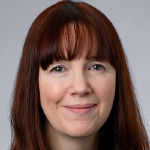- Jennifer Wallace, Chair of SFNet’s 40 Under 40 Awards, Encourages Members to Nominate Rising Stars
- Gordon Brothers Completes Big Lots Purchase & Facilitates Going Concern Sale
- eCapital Acquires LSQ to Expand Technology Solutions and Strengthen Market Leadership
- Interview with Kristin Maxwell, Member of SFNet’s Inclusiveness Committee
- Solifi Appoints Corazzi Chief Executive Officer as Hamilton Steps up Into Chairman Role
Interview with Ikhwan Rafeek, Member of SFNet’s Diversity, Equity & Inclusiveness Committee
March 17, 2022
By Michele Ocejo

Ikhwan Rafeek is a Member in the Otterbourg P.C.’s Banking and Finance Department.
Ikhwan represents institutional lenders, banks, commercial finance companies, and factors in connection with the documentation of domestic and international secured lending arrangements, including asset-based, term loan, healthcare, real estate, middle market, leveraged, and first and second lien loan transactions. Mr. Rafeek also frequently represents secured lenders in workouts and restructurings, and in portfolio acquisitions and dispositions.
In the course of his career, Ikhwan has worked on a range of transactions, including:
- Single lender revolving and term loan credit facilities ranging from $5MM to over $100MM
- Syndicated revolving and term loan credit facilities ranging from $25MM to over $300MM
- Factoring facilities ranging from $1MM to $200MM
- Supply chain financing facilities ranging from $5MM to over $300MM
- Acquisitions of loan and factoring portfolios by banks and finance companies
- Workouts and Forbearances for distressed borrowers
- Secured Party Sales of Collateral
Ikhwan lives in Valley Stream, New York with his wife and three children. In his spare time, he enjoys learning about the process of creating media such as movies, television shows, and music.
Please provide a bit of background. How did you get into the industry? What do you do in your current role?
My family and I immigrated from Guyana to New York City when I was young, and I grew up in Queens, New York. My family are small business owners, and I worked with the family business from the time I was an early teenager until I became a lawyer.
I attended CUNY Baruch College in Manhattan, New York, and then St. John’s Law School in Queens, New York. While in law school, I was a summer intern at Otterbourg, and was fortunate to be offered a full-time position to join their nationally recognized banking and finance practice. I have spent my entire career at the firm and have had the opportunity to work with some of the foremost experts in asset-based lending, factoring, and bankruptcy.
In my current practice, my clients include both small to middle market factors and finance companies, and large banks in higher market syndicated asset-based lending transactions. While my practice focuses on the “front end” process of negotiating and structuring transactions, I also am frequently involved in “back end” workouts and restructurings. This diversity in terms of the types and sizes of transactions makes the work dynamic, where we have to stay agile and creative in order to find effective solutions for our clients’ varying needs. However, regardless of the size or sophistication of the deal, I’ve found that the same principles that applied to my family’s small business consistently apply to my legal practice, in that they both at their core revolve around providing the best customer service to our clients.
Why did you join the Committee?
I joined the committee to connect and build relationships with peers from diverse backgrounds, but more importantly to connect with younger professionals in the industry in hopes of providing them with support as they move through their careers. When I first got into the industry, there were very few people with backgrounds that I could directly relate to, and I effectively had to learn how to speak and act in a new way in order to “fit in”. While this is part of the development for professionals from various backgrounds, it can be particularly challenging for those who are part of a minority group within their profession. I find that that having people around who share similar journeys as you do make the challenges of development easier to overcome. I ultimately would like to be one of those resources for younger professionals who may have shared similar experiences and challenges as I have.
What do you think the industry can do to increase diversity, equity and inclusiveness?
I personally try to focus on actively hiring, training, and promoting people from diverse backgrounds. I believe that if they get in the door and become experts in their field, then hopefully they will see the rewards associated with that, not just from a professional and financial standpoint, but also from a personal standpoint in being able to have a fulfilling career. I then encourage them to “pay it forward” and do the same when they are in a position to do so.



